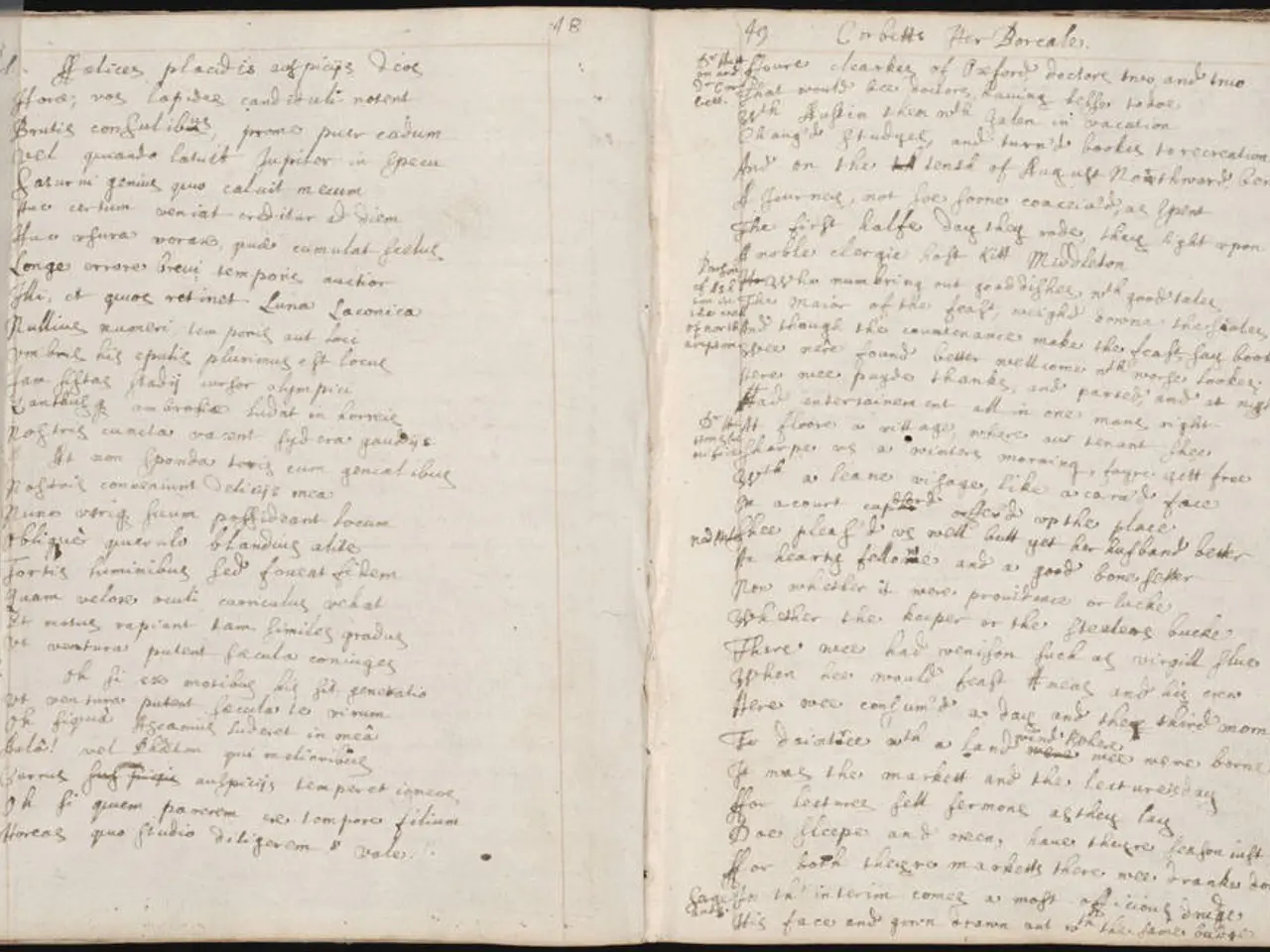Write a Fresh Tale: Simply Engage in Composition
In the face of personal misfortunes, it is easy to let writing slip away. However, acclaimed writers such as Steven Pressfield advocate for perseverance, suggesting that writing should continue, even during difficult times.
Writing daily, for as little as 15 minutes a day, can help maintain a connection to the story and the work. This consistent effort is associated with increased productivity, frequent creative thoughts, and less struggle with writing. In contrast, stopping writing can lead to inner resistance, procrastination, and the need for a greater effort to begin again.
Inertia, a property of matter, can also be a factor in writing. It can cause one to continue writing or remain unchanged. To combat this, strategies for maintaining writing productivity and overcoming self-doubt include setting small, manageable goals; creating accountability through writing groups or coaches; practicing self-compassion and celebrating accomplishments; and using structured routines like timed writing sprints or daily word targets.
One effective approach is to meditate on your deeper why and build self-worth. Reflecting on why writing matters to you personally can cultivate intrinsic motivation. Building self-worth supports resilience against self-doubt. Hiring a writing coach or joining writing groups can also provide personalized guidance and peer support, helping to normalize struggles and boost confidence.
Another strategy is to use implementation intentions. Formulating specific if-then plans can gently redirect you when facing emotional challenges like boredom or self-doubt. For example, if you feel stuck, then write a brief character sketch.
Setting tiny goals with fast wins is another useful tactic. Breaking big writing tasks into very small, specific units can increase motivation and reduce overwhelm. Timed writing sprints with rewards can also harness dopamine and maintain productivity flow.
Tracking progress through controllable metrics, such as consecutive writing days or hours spent writing, can create visible momentum fostering continued effort. Starting with reading passages or quotes can also reduce the intimidation of a blank page, thereby easing entry into writing sessions.
Celebrating accomplishments and practicing self-encouragement are essential for combating imposter syndrome and maintaining writing confidence. Writing alongside others, either in-person or virtually, can increase focus and motivation by reducing feelings of isolation. Externalizing ideas visually, using sticky notes, whiteboards, or storyboards, can aid focus and minimize overwhelm.
These strategies address both the psychological barriers of self-doubt as well as practical obstacles to writing productivity during tough periods. They foster a positive, structured, and supported writing practice that can be adapted to personal needs and challenges.
The speaker, faced with personal situations that shifted responsibilities and emotional stress, refused to give up writing. They were inspired to commit more fiercely to writing after a personal disaster, rather than surrendering to complacency and resistance. Athletes play hurt and warriors fight scared, according to Pressfield, and writers should follow suit by continuing to write during difficult times.
The speaker was motivated to take writing seriously after a car accident, with an inner voice telling them to "Write like your life depends on it." They wrote 55 pages of their current screenplay over the last 11 weeks, in just 15 minutes a day, despite facing crushing emotional challenges and personal obstacles.
The speaker's working theory is to take time off from writing and play hard, but to have a plan for getting back to writing after rest or vacation to avoid being caught off guard by resistance. Theodor Adorno once said, "For a man who no longer has a homeland, writing becomes a place to live." For many, writing serves as a solace and a commitment to oneself during personal misfortunes.
- Continuing to write, even for 15 minutes a day, can help maintain a connection to the screenplay and support personal growth, as it can foster increased productivity and less struggle with writing.
- In education-and-self-development and productivity, formulating specific if-then plans can help overcome self-doubt and maintain writing productivity during challenging times, such as writing a brief character sketch when feeling stuck.
- During personal hardships, writers can find solace and self-worth in their work by reflecting on their deeper why and applying strategies like writing alongside others, tracking progress, and celebrating accomplishments. This fosters a positive, structured, and supported writing practice, promoting personal growth.




